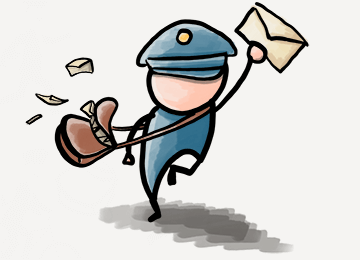Today’s post comes from Emma Lombard, an Australian historical fiction author.
So, you wrote a book and took the plunge to hire a professional editor (well done, you!) But now you have reams of feedback and it’s all a bit overwhelming.
Step 1—Keep an Open Mind
- Before opening your feedback, repeat after me, “Editors are friends, not foes.”
- Remember that you went to an editor for help and that most editors love their job, so the feedback you get comes from a place of wanting to see you and your book succeed.
- Ready to read that developmental report now?
Step 2—Read and Rest
- Read the report. Check your reactionary emotions at the door and see the critique as helpful, not hateful.
- Take a second slower read to absorb the information a bit better.
- I personally do a third read with two coloured highlighters: a fun colour (pink) for all the positive comments; and a more serious colour (green) for all the critique and suggestions. This ensures that I have a visual representation of the balance of feedback that I’m looking at and gets me prepared for the re-work and re-writing ahead of me.
- Now, put the report down for a few days and resist any temptation to jump into editing your work just yet. This percolation is necessary to digest the huge amount of feedback and to kick your writer’s brain into what it does best, plotting and scheming how you’re going to incorporate the suggestions.
Step 3—Get Beta Reader Opinions
- I let my beta readers read the developmental edit. I’ve valued their feedback and opinion greatly up to this point, so why not gather their take on what my editor says?
- My loyal team of beta readers has usually read my manuscript more than once (some over a dozen times), so they are just as familiar with the story and characters as I am. Talking about the details of the developmental edit with a group of trusted readers is wonderful for deciding on the direction to take with your re-writes.
Step 4—Implement the Feedback
- Read the report again and make notes (write your ideas down or you’ll inevitably forget).
- By now, you’ll have a good idea about which suggestions you want to implement and which ones you want to leave be. If you’re unclear about anything, don’t hesitate to call or email your editor asking for clarification. Communication is key!
- Start on page one and edit, amend or update the feedback you’ve chosen to keep. Stick with ONE change at a time, so as not to become overwhelmed. Some changes are quick, whereas some restructures take a few days or weeks.
- Mark the edits that you’ve implemented to measure your progress and to prevent accidentally missing or skipping any suggestions.
Step 5—Finish Edits and Rest
- Just like when you finished your first draft, put your edited manuscript down for a couple of weeks.
Step 6—Re-read the Manuscript
- This is vital to ensure the edited changes you have incorporated flow smoothly.
- Double-check your timeline, if you have one that is pertinent to your story, as the edits may have shifted scenes and events around.
Step 7—Use Beta Readers Again
- If you have a passionate bunch of readers behind the scenes, they will be only too happy to re-read the new and improved version of your manuscript.
- If you don’t have any beta readers, find some. Even if you have a loyal team of beta readers, it’s a good idea to get some fresh eyes on your manuscript too.
Emma’s bio
Before becoming a historical fiction author, Emma Lombard was an editor in the corporate world across various industries: aviation, aquatic ecology, education and the world of academia. Her blog series Twitter Tips for Newbies is popular in Twitter's #WritingCommunity for helping writers (new to Twitter) navigate the platform and find their voices on social media. She is the author of the upcoming historical adventure, Discerning Grace. To connect with Emma or enquire about being a guest blogger, head to her author website.

